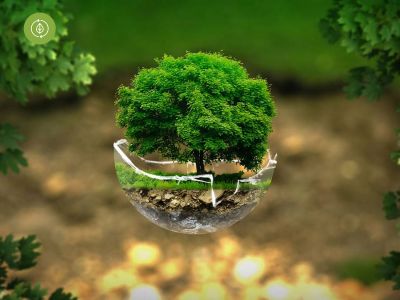Hello darlings,
As the world becomes more aware of the damages we are causing our planet, many people have taken a pledge to become more environmentally-conscious.
The good news? You can do this too!
Being eco-friendly can not only allow for you, personally, to contribute to a better, sustainable world, but it can also, in the long run, save you money. Through different approaches, such as looking at mechanical engineering or electronic use or waste production, you can increase your
awareness of how to become eco-friendly.
Better yet? There are easy steps to take to make your home eco-friendly, which allows you to contribute more directly to a stronger environment for our future!
1. Invest in Solar Panels
Energy efficiency is key to sustainable environments, meaning the popularity of solar energy is on the rise. Solar panels offer clean energy, and although many are hesitant because this is a long-term-investment, the panels will eventually save you money in addition to helping your home be easily eco-friendly. For more information on solar panels and their instillation you can visit: solareo.it.
2. Use Efficient Light Bulbs
Whether solar panels are a viable option for you or not, you can also cut down on your home’s carbon footprint by doing a simple exchange: using energy efficient light bulbs instead of regular ones! These bulbs will use less electricity and they last longer—it is a quick fix for any home!
3. Use Natural Cleaning Products
Although you may not think about your cleaning products often, many of the household items you use to ensure clean dishes or floors contain harmful chemicals that are bad for the environment. By simply washing them away, these harmful chemicals do not disappear, but they are put into the water supply, which feeds into the soil and into our water supply, and into
the ocean as well. Once there, it requires more purification to ensure that the water is safe to use again. However, by using natural products such as vinegar or citrus acid, you can keep your home clean and our water supply safe! If you want to do it yourself follow my easy recipe for a natural cleaner.
4. Purchase Recycled Materials and Recycle Yourself!
Recycled products use previous ͞waste͟ and make it new again. This way, our landfills don’t overflow past their capacity. By simply purchasing recycled materials such as toilet paper or paper towels, you help decrease your waste footprint. In addition to this, look to see if your neighborhood recycles. By putting cans, bottles, cardboard and newspaper out weekly, you can help create more recycled materials, starting a great pay-it-forward system.
5. Consider Creating a Compost in Your Kitchen
More often than not, kitchens are the prime source of waste and energy use. In order to be smarter in the kitchen, you can cook more intelligently. For example, by creating a compost in your kitchen, you can turn any scraps and leftover food into compost! The breakdown of these extra foods can give you ample and viable soil to grow your own foods with, thus creating, once again, an eco-friendly pay-it-forward cycle!
6. Check Your Home’s Insulation
Heating your home is one of the most expensive ways in which you use energy. To improve your house’s eco-friendliness, it is important to ensure that the insulation in your walls is helping your home, not hurting it. Good insulation will help hold heat, which will help you use less energy when attempting to warm up your home. You can also consider adding insulation to the roof if you don’t already have it. Some places have even started creating window-designs that will help with home insulation. Consider looking into them.
7. Look at Where You Waste
Although it seems as if you can only become eco-friendly with energy saving steps, this is far from the truth. By looking at other approaches, you can save money and keep your home eco-friendly. One way to do this is to start being serious about saving water. You can do this by simply fixing leaks or implementing lifestyle changes, such as taking shorter showers or using low-flow shower heads!
Overall
There is not one correct way in which you can go about making your home more eco-friendly.
Often, this lifestyle change requires a combination of many steps, and while it may take some adjusting, by simply being aware of your energy use and waste production, you can quickly and effectively help create a sustainable environment right in your own home.

